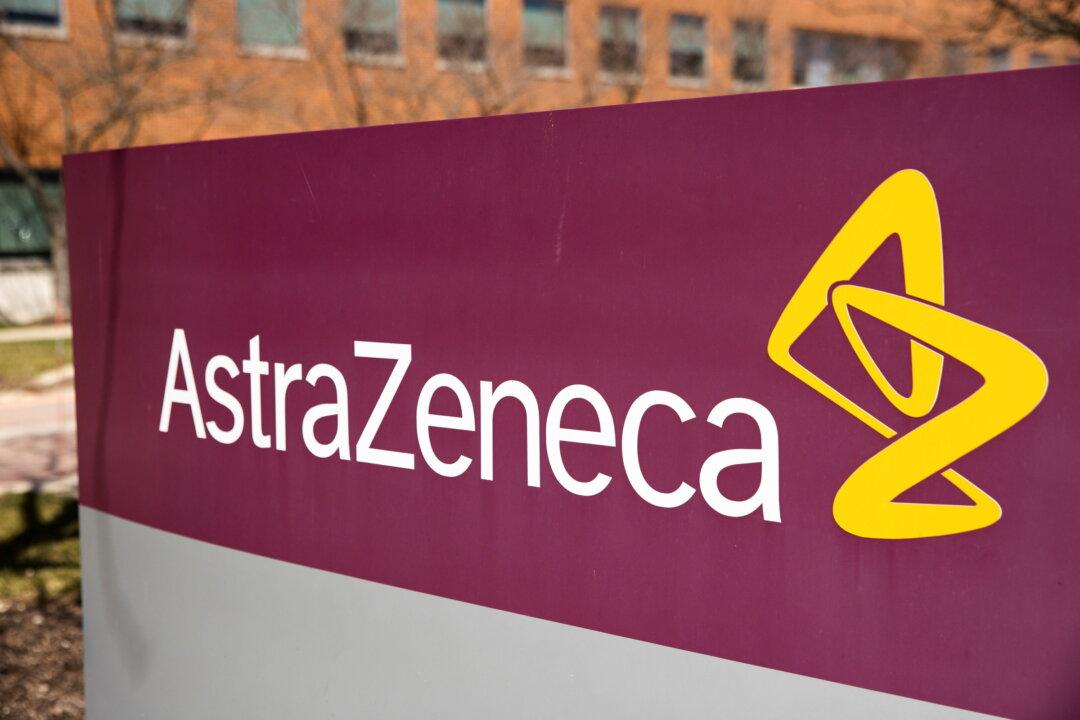
The logo for AstraZeneca is seen outside its North America headquarters in Wilmington, Del., on March 22, 2021. Rachel Wisniewski/Reuters
A European biotechnology firm on Tuesday announced it’s seeking emergency authorization of a treatment it says can prevent symptomatic COVID-19.
AstraZeneca said it submitted an emergency use authorization (EUA) request for an antibody combination drug dubbed AZD7442.





